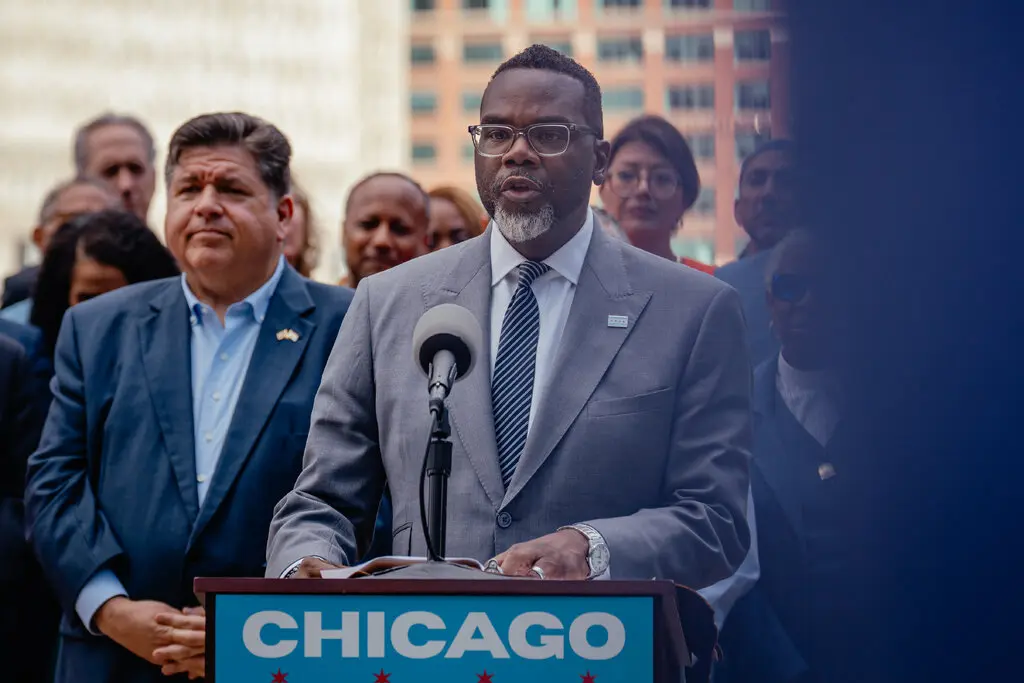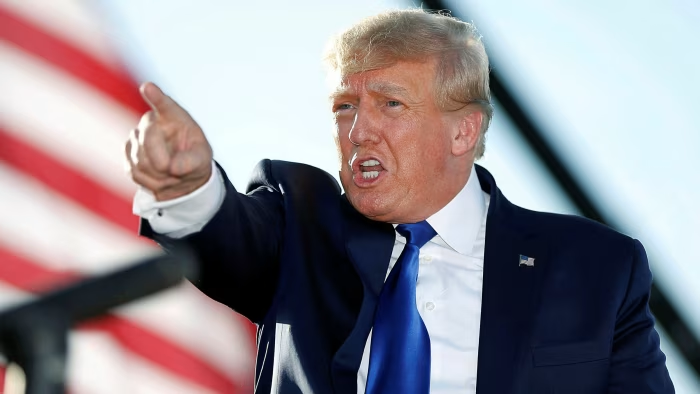Republican states are dealing with rising crime while their troops are kept busy patrolling Washington for show

When Tennessee’s Republican governor, Bill Lee, sent members of the National Guard to Washington to assist President Trump in his campaign against crime, critics quickly questioned why those same troops were not being used at home. Memphis, for instance, has consistently ranked among the most violent cities in America, with a homicide rate nearly double that of Washington, based on F.B.I. data. Nashville’s violent crime levels also surpass those in the nation’s capital.
Similar questions hang over other Republican governors, including Greg Abbott in Texas, Mike DeWine in Ohio, and Mike Kehoe in Missouri, whose states contain cities with crime rates higher than Washington’s. Yet, none of these leaders have called on the federal government to intervene locally. The spectacle of Republican governors sending their Guard units into Democratic-led cities has left many Americans uneasy, reinforcing a sense of deep political division and the potential for escalating conflict. Asked if he might send troops into Republican-led cities that struggle with violence, Mr. Trump brushed off the idea, saying, “Sure, but there aren’t that many.”
That assertion is far from reality. Cities such as Kansas City, St. Louis, Springfield, Birmingham, Cleveland, Dayton, Toledo, Tulsa, Memphis, Nashville, Houston, Little Rock, Salt Lake City, and Shreveport all record violent crime rates comparable to Washington, according to the F.B.I.
Still, the presence of federal reinforcements in Washington has not exactly aligned with the dire warnings from Democrats, who described them as an “occupying force.” Even Republican governors who have not yet requested help for their own cities may reconsider after seeing the short-term results in the capital. The added forces, deployed and paid for by the federal government, appear to have produced tangible effects. Washington’s mayor, Muriel Bowser, though initially critical, has acknowledged the deployment for contributing to “more accountability” and for helping to curb offenses such as carjackings.
Chicago may be the next city under consideration for Trump’s crackdown. Its mayor, Brandon Johnson, has strongly opposed what he described as his city being “occupied by federal troops.” Yet, Chicago’s police chief, Larry Snelling, has adopted a more cautious view, suggesting that if the Guard does arrive, coordination would be key: he hopes federal and local officers could “find some type of balance” and avoid “an adversarial environment.”
Red-state leaders sending troops into blue-state cities is emblematic of the widening political rift and reflects how far some Republicans will go to align themselves with Mr. Trump. At the same time, many of these governors avoided direct answers when asked why they support sending troops elsewhere but not requesting assistance at home.
In Texas, Andrew Mahaleris, a spokesperson for Governor Abbott, sidestepped questions about whether the governor sought Trump’s help in Houston or San Antonio, instead referring inquiries to the Department of Homeland Security. In Ohio, Governor DeWine’s spokesman Dan Tierney noted that under state law, any request must originate from a city’s mayor, adding that “no current mayoral requests for National Guard assistance” had been submitted. Tennessee’s Governor Lee offered no response at all.
Experts suggest the pattern of deployments reveals the obvious—that Trump’s strategy is not guided by crime statistics. “The federal government almost never does anything based on pure statistics,” said Adam Gelb, president and chief executive of the nonpartisan Council on Criminal Justice. “No administration would just look at a chart and go straight down the list based on rates of violence.”
Jeffrey A. Butts, executive director of the Research and Evaluation Center at John Jay College of Criminal Justice, observed that in Washington, federal agents were not stationed in the neighborhoods with the highest levels of violence, but rather near monuments and federal buildings. “If you accept the premise that it is OK to use military resources in the name of securing public safety, which is very debatable and I think historically should be rejected, they would be in the communities with the highest rates of gun violence,” he explained. “They’re not doing it to improve public safety. It’s designed to humiliate political opponents.”
The political backdrop also intersects with economics. States must balance budgets, while the federal government has covered the cost of more than 2,000 National Guard troops sent to Washington, a deployment totaling around $1 million a day. That reality raises the question of whether other cities could access similar resources if they requested them.
Federal support for local policing is not new. Washington’s mayor, Bowser, has long sought additional officers but has been constrained by funding. Programs like the Community Oriented Policing Services (COPS), launched under President Bill Clinton in 1994, have been largely championed by Democrats in Congress as a way to bolster local forces.
Thomas Abt, founding director of the Center for the Study and Practice of Violence Reduction at the University of Maryland, said true partnerships between federal and local governments have shown promise. His center has worked with Memphis, Knoxville, St. Louis, and Boston to design strategies focused on the people and places most vulnerable to violence. He said these efforts combined accountability with credibility, producing measurable progress. Knoxville, St. Louis, and Boston have all reduced violent crime more rapidly than the national average, while Memphis is showing signs of improvement. “Reducing crime is a team sport,” Abt explained. “Mayors and governors would appreciate sustained support and sustained collaboration from their federal partners. They always have and they always will.”
But Democratic governors insist that Trump’s current approach—deploying troops uninvited—bears little resemblance to constructive collaboration. In a joint statement, 19 Democratic governors condemned the president’s actions. “Whether it’s Illinois, Maryland and New York or another state tomorrow, the president’s threats and efforts to deploy a state’s National Guard without the request and consent of that state’s governor is an alarming abuse of power, ineffective, and undermines the mission of our service members,” they said.



